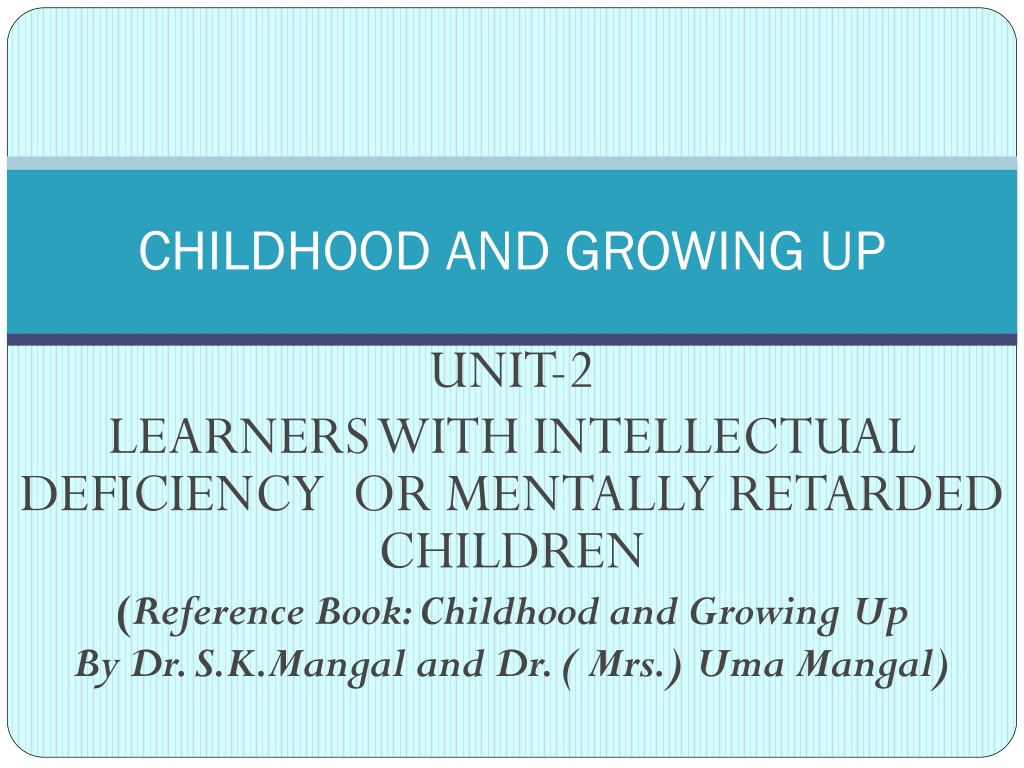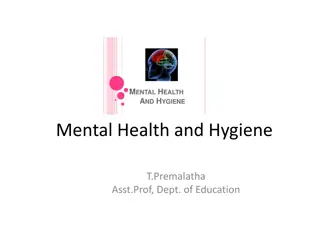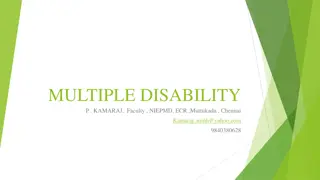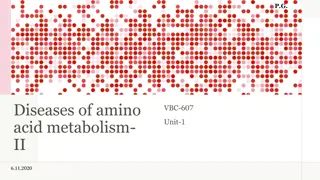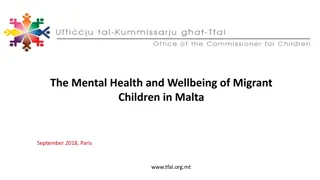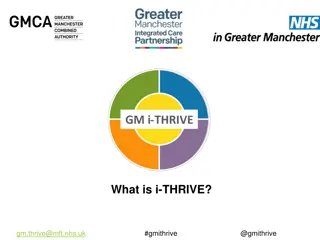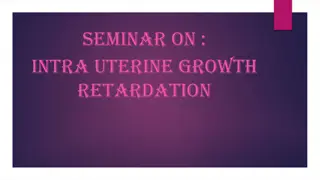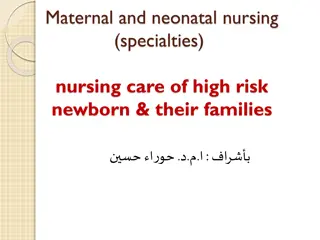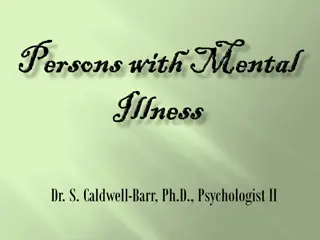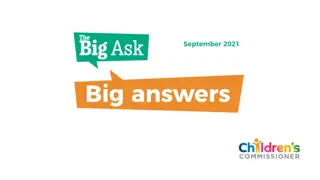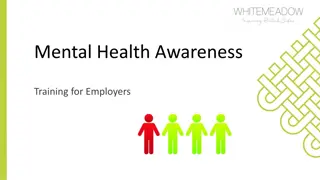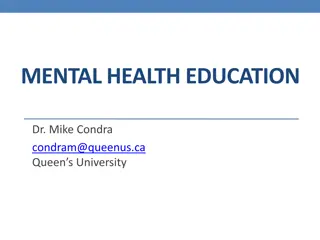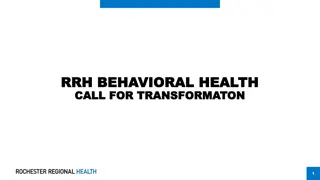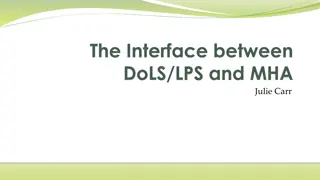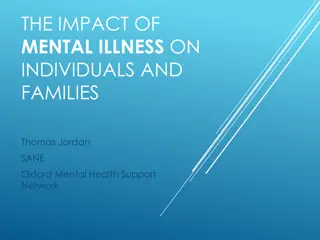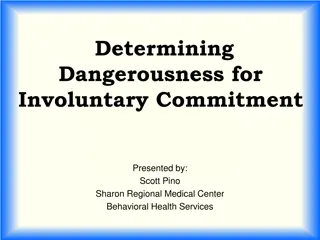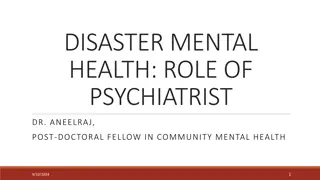Understanding Mental Retardation in Children: Characteristics and Definitions
Mental retardation, a condition of subnormal intellectual development, affects children's ability to function independently and adapt to their environment. Defined by various organizations, it is not a disease but a state of mind related to inadequate brain development. This article explores the characteristics, types, and definitions of mental retardation in children.
Download Presentation

Please find below an Image/Link to download the presentation.
The content on the website is provided AS IS for your information and personal use only. It may not be sold, licensed, or shared on other websites without obtaining consent from the author. Download presentation by click this link. If you encounter any issues during the download, it is possible that the publisher has removed the file from their server.
E N D
Presentation Transcript
CHILDHOOD AND GROWING UP UNIT-2 LEARNERS WITH INTELLECTUAL DEFICIENCY OR MENTALLY RETARDED CHILDREN (Reference Book: Childhood and Growing Up By Dr. S.K.Mangal and Dr. ( Mrs.) Uma Mangal)
CHILDHOOD AND GROWING UP CHILDHOOD AND GROWING UP UNIT-2 LEARNERS WITH DEFICIENY OR MENTALLY RETARDED CHILDREN Lecture-1 INTELLECTUAL PRESENTED BY: Dr. MAHASHEVTA GAUR BRAHMAN COLLEGE OF EDUCATION, ROHTAK
Mental Retardation The term retardation means gradual decrease than the normal speed of growth and development in any person. The term Mental Retardation depicts a special type of psychological disorder associated with the arrest or incomplete development of one s brain beginning usually at birth and leading to lessening of intellectual powers relative to his chronological age.
Mental Retardation Through the Lens of Various Definitions American Association on Mental Deficiency (1973): Mental Retardation refers to significantly sub-average intellectual functioning existing concurrently with deficits in adoptive behaviour and manifested during the development period. British Mental Deficiency Act (1981): Mental Retardation is a condition of arrested or incomplete development of mind existing before the age of 18 years whether arising from inherent causes or induced by disease or injury. J.D. Page (1976): Mental Deficiency or Retardation is a condition of subnormal mental development present at birth or early childhood and characterized mainly by limited intelligence and social inadequacy.
Characteristics of Mental Retardation Mental Retardation is a condition of state of mind. It is not a disease or illness of mind. It is related to the subnormal development of the mind or brain. It is also related to one s inadequate adjustment with the environment. The deficiency may be observed at birth or in early childhood. Both the inherent and external factors may cause mental retardation. Hence, Mental retarded or disabled children are those who suffer from the retarded subnormal or deficient growth and development of their brain affecting their intellectual capacities to the extent that they feel handicapped in their adaption to the environment and thus require special care and provision for their welfare and development of their capacities
Types of Mentally Retarded or Disabled Children On the basis of Intelligence Tests On the basis of Adaptive Behaviour Category Range of I.Q. The degree to which the individual is able to function and maintain himself independently. Idiots below 25 Imbeciles from 25 to 50 The degree to which he meets satisfactorily the culturally imposed demands of personal and social responsibility. Morons from 51 to 75 Border line and from 76-90 the Dull
New Classification of New Classification of Subnormality The consideration of deficiency in adaptive behaviour along with the low scores on an inelligece test resulted in the development of an altogether new classification of subnormality. The terms moron, imbecile or idiot are now completely avoided for determining the level of retardation. Subnormality
The new terminology of Mental Retardation in terms of obtained I.Q. on different test scales Level of Retardation Stanford Binet Intelligence Quotient Wechsler Scales Under 20 Under 25 Profound 20-35 25-39 Severe 36-51 40-54 Moderate 52-67 55-69 Mild LEVELS OF MENTAL RETARDATION To be Continued in Next Lecture .
